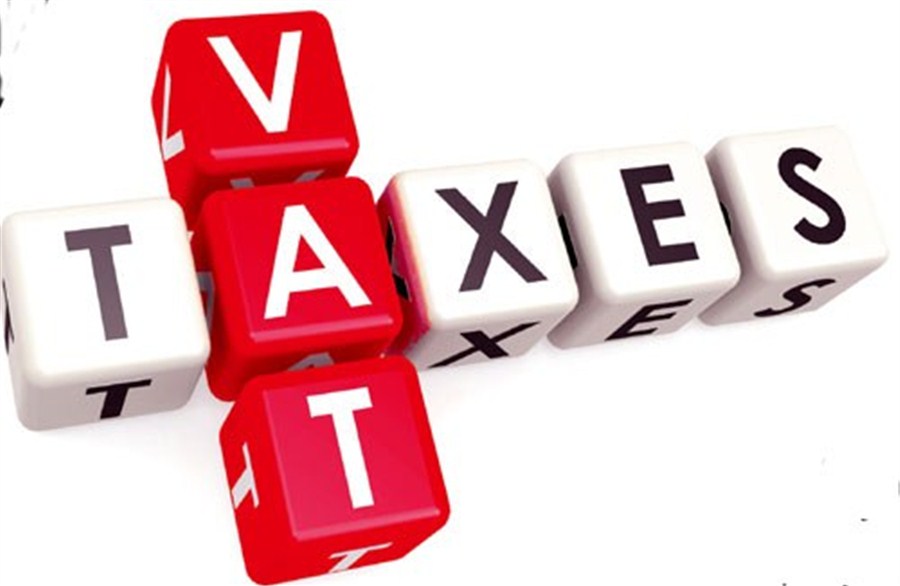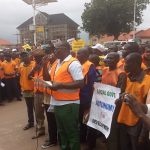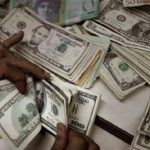Economy
Proposed 7.5% VAT Won’t Affect Poor Nigerians—FG

By Dipo Olowookere
Nigerians have been informed by the federal government that the proposed hike of the Value Added Tax (VAT) next year will not affect the poor as being feared by many.
Minister of Finance, Budget and National Planning, Mrs Zainab Ahmed, said this on Monday at the opening of the 25th Nigerian Economic Summit (NES#25) taking place at Transcorp Hilton Hotel, Abuja.
She said at the yearly gathering that the raising of VAT to 7.5 percent from the present 5 percent would affect the wealthy in the society more than the poor in the country.
“The proposed VAT increase is likely to impact more on consumption by the urban communities and the wealthier sections of the population, than on the poor,” Mrs Ahmed said at the event, which was declared open by President Muhammadu Buhari.
The Minister said the 7.5 percent VAT increase proposal was in line with the recommendations of the Presidential Committee on the Funding Options for the Minimum Wage Increase.
According to her, “This administration remains committed to increasing finance for investment health and education, to improve our human capital development indices.”
“However, our target is also to increase funding for capital expenditure such that this constitutes at least 30 percent of federal budgeted expenditures. Given these aspirations, the government has been compelled to review our fiscal policies including the proposed VAT rate increase,” she declared.
She noted that Nigeria’s VAT as a share of Gross Domestic Product (GDP) has declined in the last four years (2015 – 2018), adding that the present level was below the median of 5 percent of GDP in other comparable African countries.
She attributed Nigeria’s low VAT-to-GDP to the low nominal VAT rate, which at 5 percent is the lowest in the African region (which averages at about 16 percent).

NES#25
Speaking on theme of this year’s summit, Nigeria 2050: Shifting Gears, the Minister emphasised the imperatives for the country to move to a more robust competitive private sector economy with focus on the implications of the projected population of the country hitting over 400 million, making Nigeria the third most populous country in the world by 2050.
According to her, the structure of this population shows that majority will be under the age of 35, representing a large percentage of Africa’s young working-age population. The opportunities are endless, as are the risks, however, if we do not accelerate our efforts towards sustainable and inclusive growth, and improved human capital.
Based on these, the Minister said, “There is an urgent need to design policies that will not only address the rising population but ensure paradigm shift to a competitive private sector led economic growth and development.”
“The agenda for this summit is therefore, to provide strategic and innovative ways of getting the maximum benefits from the expected demographic dividends,” she further declared.
Mrs Ahmed noted that as you are aware, the summit organised by the Federal Ministry of Finance, Budget and National Planning and the Nigeria Economic Summit Group has indeed remained the foremost platform for the public and private sector stakeholders to discuss issues and challenges facing the nation with a view to evolving common strategy and policy frameworks for addressing them.
“This summit, though a celebration of 25 years of its commencement, is a testament to a successful partnership between the public and private sectors.
“These 25 years of collaborative engagement has helped in shaping the policies of government. Let me briefly state that past summit outcomes have contributed to policies on Power sector reforms, Agriculture sector reform, and the Pension Reform among others,” she said.

Minister Envisages Her Future Nigeria
The Minister said she sees a future where the majority of Nigerians have been sustainably lifted out of poverty, and have access to fundamental services including education, health care, water supply and sanitation. A future where all are financially included, with affordable access to financial products and services. A future where no one is left behind.
“I see a future Nigeria with a thriving and booming private sector led economy that can translate into domestic revenues for governments to reinvest in sustainable growth levers.
“I see a future where our young and vibrant population is well educated (particularly in STEAM [Science, Technology, Engineering, the Arts and Mathematics] education) – creating a workforce with the skills that well position our youth to be gainfully employed. This includes high value digital jobs that will not only tap into but also drive the limitless global digital economy.
“I see an advanced high-tech manufacturing sector that is globally competitive, and can ensure value addition for our natural endowments in raw materials.
“I see a safe and secure environment where people and businesses move freely and fearlessly to go about their trade, work and other daily activities.
“This future we crave for will not be created by luck, neither will it be created by the Federal Government nor by State Governments alone. It will require collective action by all stakeholders including citizens and the private sector.

“As we all know the private sector has a crucial role to play. This future will require comprehensive targeted reforms, tough decisions, a radical shift in the current culture, including attitudes towards taxes and public finance. Just as the saying goes ‘no pain no gain’- I must say, the journey will be a painstakingly tough and will require sacrifices on all sides- including Government, the private sector, citizens and other stakeholders,” the Minister stated.
Speaking further, Mrs Ahmed said the future requires huge financial investments on multi-faceted physical and social areas by both the federal, state and local governments to be able to provide quality, useful, accessible and affordable education, healthcare, transportation, housing, electricity, water.
“Additionally, we must be in a position to provide digital connectivity and innovation, and rise above the tide of disruption that the Fourth Industrial Revolution will bring.
“The outputs of this 25th Anniversary Summit will be critical as we work towards co-creating the Nigeria we envision and we deserve. They will aid Government in developing and implementing the next generation of National Plans, and towards implementing policies and programmes,” she said.
Concluding, the Minister said, “As representatives of government, the private sector, civil society, and most importantly as Nigerians, [we must] join hands to co-create a future Nigeria in which: (a) no one is left behind; (b) growth is not only competitive but is also inclusive and sustainable; (c) and in which we as the Giant of Africa will lead the way in terms of innovation, industrialization, and human capital on the continent and beyond.”
Economy
Naira Crashes to N1,378/$1 as FX Demand Outpaces Supply

By Adedapo Adesanya
The gradual fall of the Naira against the United States Dollar continued on Monday after it further lost N14.63 or 1.07 per cent to close at N1,378.02/$1 compared with the N1,363.39/$1 it was traded at last Friday at the Nigerian Autonomous Foreign Exchange Market (NAFEX). This was due to an insufficient supply of FX to meet the demand of customers at the currency market.
The Nigerian currency also depreciated against the Pound Sterling in the same market segment during the session by N9.65 to trade at N1,846.14/£1 compared with the previous trading day’s rate of N1,836.49/£1, and declined against the Euro by N3.76 to settle at N1,612.98/€1 versus the preceding session’s N1,609.22/€1.
In the same vein, the Nigerian Naira tumbled against the greenback in the black market yesterday by N5 to quote at N1,375/$1, in contrast to the previous value of N1,370/$1, as forex demand pressure gradually mounts.
The Central Bank of Nigeria (CBN) sold $200 million to boost the supply side and moderate demand pressures. For February, the CBN operated on both sides of the market, selling $225 million and purchasing $261.80 million. However, as FX demand continued to outpace available supply, pressure mounted further in the market.
Meanwhile, the research subsidiary of Coronation Merchant Bank said FX liquidity improved significantly last week. Total FX inflows into the official window rose to $1.07 billion from $648.20 million in the prior week.
Analysts maintain that the exchange rate is still trading within its projected N1,350 to N1,450 per Dollar band, dismissing panic concerns.
Meanwhile, the cryptocurrency market was bullish on Monday after macro shocks triggered repositioning across markets, and digital currencies benefited as some investors rotated back into risk.
After weeks of US military buildup and deadlocked nuclear diplomacy, the war with Iran increases the danger of a wider regional confrontation in a strategically vital economic corridor, adding to the risk gains for the market.
Ethereum (ETH) gained 5.5 per cent to trade at $2,050.07, Solana (SOL) appreciated by 5.2 per cent to $87.76, Bitcoin (BTC) added 4.9 per cent to sell for $69,322.35, Binance Coin (BNB) rose 3.2 per cent to $637.94, and Litecoin (LTC) expanded by 3.0 per cent to $52.39.
Further, Ripple (XRP) jumped 2.9 per cent to $1.40, Cardano (ADA) improved by 2.1 per cent to $0.2801, and Dogecoin (DOGE) increased by 1.9 per cent to $0.0946, while the US Dollar Tether (USDT) and the US Dollar Coin (USDC) remained unchanged at $1.00 apiece.
Economy
Oil Prices Surge as Strait of Hormuz Traffic Freezes Amid Iran-Israel Row

By Adedapo Adesanya
Oil prices surged 8 per cent on Monday as Israel and US strikes on Iran and retaliation by the Islamic Republic forced shutdowns of oil and gas facilities across the Middle East and disrupted shipping in the crucial Strait of Hormuz.
Brent crude rose 8.7 per cent or $6.36 to trade at $79.23 per barrel, while the US West Texas Intermediate (WTI) crude expanded by $7.8 per cent or 5.27 per cent to $72.29 per barrel.
Oil’s surge on the restart of trading after the weekend, however, was smaller than expected. On Sunday, some analysts had predicted oil would open above $90 a barrel and closer to $100.
The widening Iranian conflict is disrupting oil flows to several Asian countries as vessels are bottled up within the Middle East Gulf, and crude and transport costs are rising.
US President Donald Trump signalled the US-Israel military assault could continue for weeks, which could mean a prolonged disruption of traffic through the Strait of Hormuz, through which around 20 per cent of global oil output and a similar share of liquefied natural gas transits via ships from Middle East producers.
On Monday, Saudi Arabia shut its biggest domestic oil refinery after a drone strike. Qatar halted production of liquefied natural gas, and state-owned QatarEnergy was set to declare force majeure on LNG shipments.
The widening Iran conflict also left 150 ships stranded at anchor around the Strait of Hormuz after a seafarer was killed and at least three tankers were damaged.
The disruptions highlight the risks to Asia, the world’s biggest oil-consuming region, which sources 60 per cent of its oil from Middle Eastern producers. For instance, an extended disruption of the Strait would push oil prices higher and could cause supply shortages to China and India, the world’s biggest and third-biggest oil importers, forcing countries to tap stockpiles and reducing refinery operations.
In the view of the International Energy Agency (IEA) and other analysts, the oil market is well supplied with additions to supply from producers such as the United States, Guyana and the Organisation of the Petroleum Exporting Countries and its allies (OPEC+) expected to outpace global demand this year.
Eight members of OPEC+ agreed on Sunday to raise oil output by 206,000 barrels per day in April.
Economy
Dangote Taps Vetiva, Others for $20bn Refinery NGX Listing

By Adedapo Adesanya
The Dangote Group has appointed Stanbic IBTC Capital, Vetiva Capital Management, and First Capital as lead issuing houses and financial advisers for its planned listing of its $20 billion Dangote Petroleum Refinery and Petrochemicals on the Nigerian Exchange (NGX) Limited in the coming months.
According to reports, which cited sources familiar with the matter, the listing could mark Africa’s largest equity offering, with plans to float 5-10 per cent of the refinery at a debut valuation of $40-50 billion. This could potentially boost the Nigerian main bourse’s market cap past N200 trillion from the current almost N125 trillion.
Stanbic IBTC, part of Standard Bank, will handle international book-building and foreign investor outreach, while Vetiva, with prior Dangote listing experience, focuses on local retail and regulations.
Late last month, the chairman of Dangote Group, Mr Aliko Dangote, said that within the next five months, Nigerians should be able to purchase shares of the refining subsidiary of his conglomerate.
The Lagos-based refinery is the largest single-train refinery in the world with 650,000 barrels per day refining capacity. There are efforts to boost the capacity to 1.4 million barrels per day soon.
“Nigerians too will have an opportunity in the next, maybe a maximum of four to five months. There will actually be an opportunity to buy the shares,” he said during a tour of the facility by the chief executive of the Nigerian National Petroleum Company (NNPC) Limited, Mr Bayo Ojulari, alongside members of the company’s executive management.
The facility, which is now operating at full capacity, a world-record milestone for a single-train refinery, comes after the completion of an intensive performance testing on the refinery’s Crude Distillation Unit and Motor Spirit production block.
The refinery is now positioned to supply up to 75 million litres of petrol daily to the domestic market, an increase from the 45 million – 50 million litres delivered during the recent festive period.
The development can reshape Nigeria’s energy landscape and reduce the country’s longstanding dependence on imported refined products while positioning the country as a net exporter to West African markets.
Yet, the refinery faces difficulty securing adequate crude oil supplies from Nigerian producers, forcing it to import feedstock from the US, Brazil, Angola, and other countries.
-

 Feature/OPED6 years ago
Feature/OPED6 years agoDavos was Different this year
-
Travel/Tourism10 years ago
Lagos Seals Western Lodge Hotel In Ikorodu
-

 Showbiz3 years ago
Showbiz3 years agoEstranged Lover Releases Videos of Empress Njamah Bathing
-

 Banking8 years ago
Banking8 years agoSort Codes of GTBank Branches in Nigeria
-

 Economy3 years ago
Economy3 years agoSubsidy Removal: CNG at N130 Per Litre Cheaper Than Petrol—IPMAN
-

 Banking3 years ago
Banking3 years agoSort Codes of UBA Branches in Nigeria
-

 Banking3 years ago
Banking3 years agoFirst Bank Announces Planned Downtime
-

 Sports3 years ago
Sports3 years agoHighest Paid Nigerian Footballer – How Much Do Nigerian Footballers Earn












